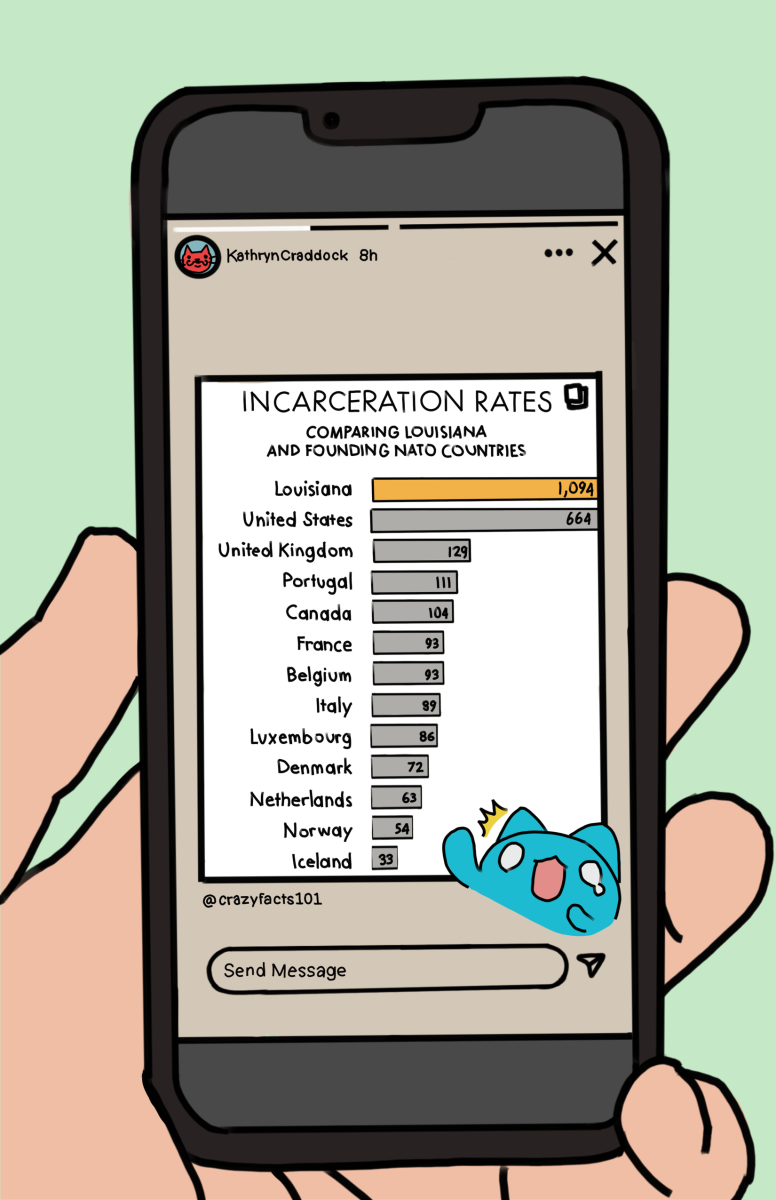My first time voting was on Nov. 6, 2018.
The election determined Louisiana representatives to the U.S. House; Garret Graves ended up winning our congressional district by a majority of 69.5%. I had just turned 18, and finding non-partisan information about the four candidates was trickier than I had expected.
Flash forward to Nov. 13, 2021. Louisiana held a primary election and proposed four amendments to the state constitution about taxes and the state budget. One of the four amendments passed, but I doubt few Louisianans realize this, as only 13.6% of eligible voters participated.
In fact, I doubt many Louisianans ever fully understood the proposed amendments. I was invested in this election, and even I struggled finding reliable and non-partisan information explaining the amendments.
The most confusing aspect of this phenomenon is that social media is saturated with politics. Facebook is full of political ramblings, Instagram teems with color-coded infographics and Twitter is a warzone of snarky, highly polarized debates.
Social media activism is more focused on virtue signaling about trendy topics than providing applicable information about local elections and actual bills being passed.
Online profiles usually favor flashy, emotional matters over the methodical technicalities of political procedures. Nevertheless, there are some notable social media accounts that excel in informing their users on current events and political discussions.
Locally based nonprofit organizations are a great place to start research into community activism. Often, these organizations provide links to reliable and easy-to-understand research.
The Louisiana Parole Project Inc. is a nonprofit 501©3 organization focused on prison reform in Louisiana. The Instagram and Twitter accounts, @paroleproject, keep followers informed on relevant legislative matters.
On May 28, 2021, these accounts posted that the Louisiana House Bill 145 had passed, granting parole eligibility for extreme prison sentences. This is an example of a social media account giving tangible information about local policies with direct effects.
Sometimes, accounts and organizations manage a balance of opinionated, trendy content and reliable political information. These accounts aren’t all bad, and with a trained eye and some critical reasoning, users can decipher which posts are useful.
One such account is the popular Instagram profile @so.informed, which gives its 2.8 million followers regular updates on topical issues. Some posts are more editorial and personal than others, such as infographics on life skills and self-care advice. Some content, though, gives practical information on how to contact elected officials and the importance of local elections.
A post from early November 2021 lays out sourced background on local elections. The post explains what ballot measures are and lists types of local positions.
Politics are polarized and chaotic. If more people applied critical reasoning, source evaluation and research to what they read and share on social media, then the conversations surrounding politics, especially at a local level, would be less overwhelming and more dependable.
If we use our heads to evaluate what we post and share, social media can be a great tool for political activism.
Kathryn Craddock is a 21-year-old mass communication junior from Patterson.
Opinion: Social media activism flawed, but some local accounts succeed
November 22, 2021
social media activism cartoon








